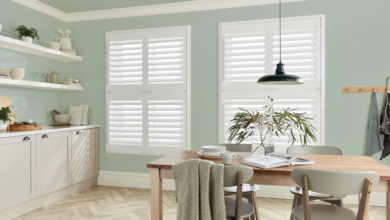Is Ducted Air Conditioning Suitable for All Homes?

Ducted air conditioning is a popular choice for Sydney homeowners looking to cool or heat their entire home efficiently. However, not every home is suited for a ducted system. Factors such as home size, structure, and available space play a critical role in determining its suitability.
How Does Ducted Air Conditioning Work?
Ducted systems use a central unit, usually placed in the roof or under the floor, to cool or heat air, which is then distributed through ducts to different zones. Modern ducted systems feature zoning capabilities, allowing homeowners to control the temperature of individual rooms, and reverse cycle technology for both cooling and heating.
Factors to Consider When Choosing Ducted Air Conditioning
Home Size and Layout
Ducted systems are ideal for medium to large homes where multiple rooms need temperature control. Open-plan homes and larger properties benefit from consistent heating and cooling, while smaller homes may not justify the expense and energy consumption.
Ceiling and Underfloor Space
Adequate roof or underfloor space is required to install ductwork. Homes with limited roof cavities, such as flat-roofed properties, may face challenges, making split or multi-split systems more suitable.
Existing Ducting or Retrofit Potential
Ducted systems are easier to install in newly built homes. Retrofitting in older homes may require modifications, increasing the overall cost and complexity.
See also: Maximising Your Hauling Potential: Why Box Trailers Are a Game Changer
Is Ducted Air Conditioning Suitable for Different Home Types?
Freestanding Homes and Large Houses
Freestanding homes and larger houses benefit most from ducted systems, providing whole-home comfort and consistent temperature control.
Apartments and Units
Ducted systems are usually not suitable for apartments due to limited space and strata restrictions. Split or multi-split systems are better options in these cases.
Townhouses and Duplexes
Ducted air conditioning can be installed in townhouses if there is sufficient roof space and strata approval is obtained.
Heritage or Older Homes
Heritage-listed properties may present challenges when installing ducted systems due to structural limitations and heritage restrictions.
Pros and Cons of Ducted Air Conditioning
Pros
- Whole-home comfort – Consistent temperature control across multiple rooms.
- Zoning capability – Allows heating or cooling of specific zones, reducing energy consumption. Explore more about ducted air conditioning Sydney to determine if it’s the right choice for your home.
- Aesthetic appeal – No bulky indoor units, maintaining the home’s interior design.
Cons
- Higher installation costs – More expensive compared to split systems.
- Not ideal for smaller homes – May lead to unnecessary energy use.
- Space requirements – Needs sufficient ceiling or underfloor space.
Cost Considerations for Ducted Air Conditioning
The cost of ducted air conditioning in Sydney varies depending on home size and system complexity.
- Small to medium-sized homes: $7,000 – $10,000
- Larger homes with multiple zones: $10,000 – $15,000
Using zoning effectively can help reduce running costs. Regular maintenance ensures optimal efficiency and prolongs the system’s lifespan.
Alternatives for Homes Unsuitable for Ducted Systems
If ducted systems aren’t an option, consider:
- Split Systems – Ideal for single rooms or smaller homes.
- Multi-Split Systems – Suitable for cooling multiple rooms without ductwork.
- Portable Units – Affordable and flexible, great for renters or temporary cooling.
Takeaways
Ducted air conditioning is ideal for larger homes where whole-home comfort is a priority. However, its suitability depends on factors like space, home size, and structural limitations. For smaller homes or apartments, alternative systems may be more practical and cost-effective. Homeowners should seek professional advice to choose the most suitable and energy-efficient solution.





